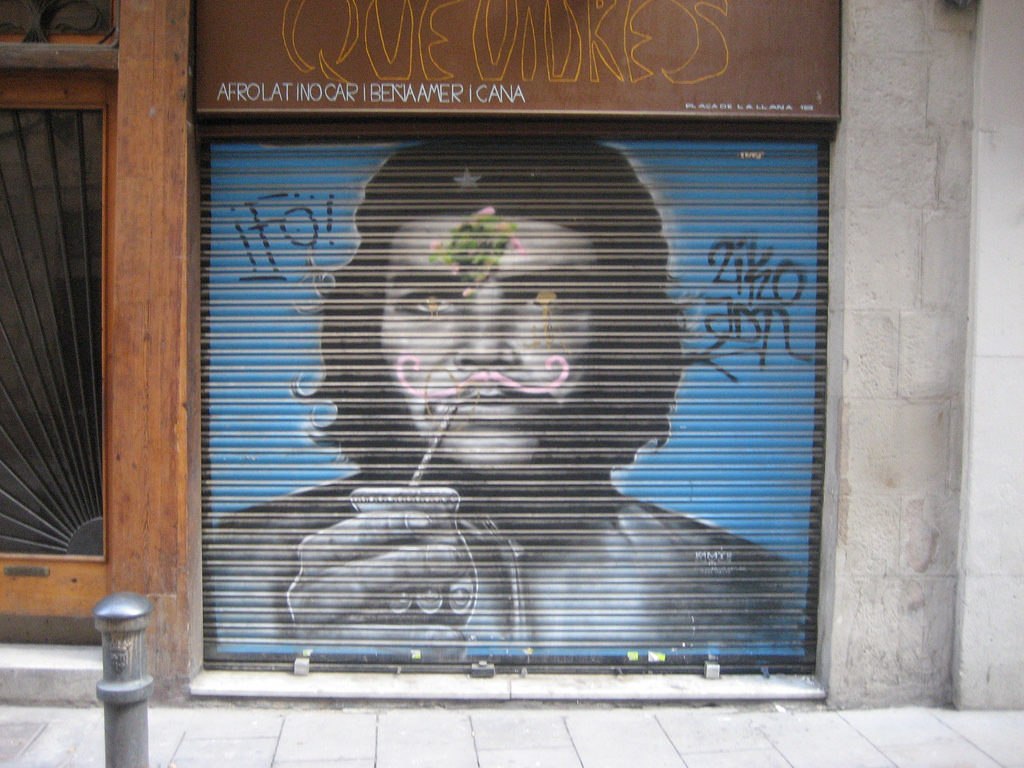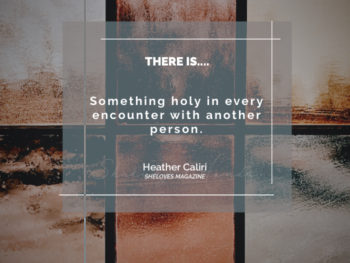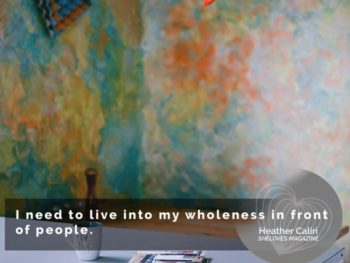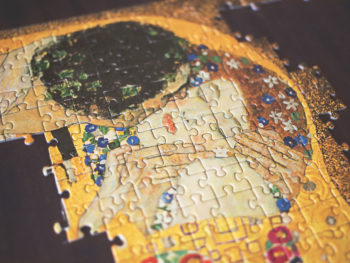My family and I spent six months in Argentina in 2013. Here’s a vintage post about what we can learn from countries off the beaten (first world) path.

Why bother going to the third world? If a country isn’t famous for anything but revolutionaries or poverty, is it worth the trip?
Before I answer this question, let’s start with this: Buenos Aires is right on the border of “third world”. It’s sort of third-world Lite. I mean, people here have nice stereo systems, you can get Starbucks, and you might have even heard of someone from here (Evita, Che Guevara, Lionel Messi, or perhaps Manu Ginobli).
But what has Argentina (or Mexico, or Uganda) brought to world culture that’s worth knowing about? That’s worth spending the money for a plane ticket?
In other words, if a country isn’t wealthy, if their culture isn’t known the world over, if you can’t locate it on a map or remember what language they speak, why bother? What’s the point?
Clearly, if I’ve travelled here four times, I must think it’s worth it.
And to be honest, the question maddens me. And it maddens me that I have heard it from people I love and respect.
Partially, it maddens me because I don’t have a blithe answer.
It maddens me because that was almost exactly my attitude before I came to the third world.
And it maddens me because at heart, I myself am hesitant to leave the Starbucks and cable modems of Buenos Aires and venture someplace a little more off-track and unknown.
Because let’s be honest: the third world scares us. It scares us without it being clear (like in the case of Paris, say), what we’ll be getting in return.
There’s a mall not far from where we live, a “shopping” as they call it here (quite fitting, I think, that the action is used for the noun). And when you go in, it looks astonishingly like any mall in the US. The broken-down sidewalks are gone, the trash heaps waiting for the garbage trucks and scavengers, the graffiti, the weaving traffic, the growl of an unmuffled moped—
Gone. Wiped away with a swish of the automatic sliding doors.
There, the air is crisp and cool, and the signs are lit in crisp neon. Some of the brands are the same, most not, but they look the same, the mannequins all with outfits that are astonishingly coordinated, the colors in neat, opulent stacks, the tiles perfectly aligned on the floor, the glass all shining and spotless. Upstairs, there is a food court. There is a McDonald’s.
It is its own world. It is lovely. And it is also, somehow, terrifically sterile.
It struck me the other day that if you stay in the US, or, especially, white, middle-class US culture, your life is lived inside a gigantic shopping mall. You are sealed off from global reality in just the same way. I don’t want to stretch the analogy here—there’s richness in US culture, diversity, and not everything (much as we rail against it) is consumption-driven.
But if you never leave the US, or even the odd bubble of first-world excess in Japan or Europe, you, too, will be cut off from reality. You’re cut off from the rest of the world. And I don’t mean cut off from the terrible poverty/injustice of the third world, either. I mean all its richness. You live in a sort of impoverishment that’s every bit as real as the impoverishment the third world is known for.
Because every big gift comes with a big blind spot. So if you’re born in privilege in the first world, you live in a kind of poverty as well.
I’ll give you a big for-instance. I tend towards anxiety. And being born in American suburbia where things run smoothly, where there’s almost limitless choice in consumer goods, in ways of being, in prospects, in expert advice, one tends to feel that success is completely up to you. That if you don’t choose correctly, buy the right product, or perfectly execute child-rearing, for instance, your world will come crashing to a halt.
When I’m out of the first world, I can better see this sense of control and anxiety for what it is: a product of culture.
And let’s not even get into other areas–money, family, friendship, connection to place. I don’t even know how-all my vision of what’s real or important would be challenged by traveling further in the third world. That’s what awes me. Each place would have its own lesson to teach. Each place could radically change how deeply I encounter the world.
Here is why, then, I want to know more of, be challenged by, and maybe someday be scared witless in the third world: because God made this world awesomely, magnificently big. And He has given different gifts to each place on it.
Am I really going to turn my nose up at the marvelous, incomparable gifts just because a place doesn’t have an Apple Store?
Photo courtesy David Weekly













 Moving? Feel At Home in Four Steps
Moving? Feel At Home in Four Steps
Amen!
I still remember my first time shopping in a developing-world market. I was a tourist in Accra, Ghana, where my husband had previously lived for a year on a Fullbright. And he took me to Makola market. It’s enormous. Sprawling. A seemingly-endless city of corrugated tin roofs, with more noise and commotion than I had ever seen before. Live chickens! Bales of dyed cloth! Piles of spices! People carrying giant pallets piled with pots and pans on their heads! It was sensory overwhelm: the sounds and scents, the press of people. And it was amazing. And I suspect it subtly but irrevocably changed the way I think about shopping and consumption and food, even here in my New England small town.
Wow, that sounds amazing, Rachel. The daily press of shopping here is familiar and transformative for me. When you’re buying your food, it’s a really vulnerable moment, you know? And the grocery stores are _almost_ the same, I can _almost_ get anything I need, and yet the holes and differences and lack of ten zillion choices is hard to get used to. I’m constantly reminded how weird US food culture is (for not having one, really). How organic isn’t even a choice here. How anonymous shopping is, how car-dependent it is in the US. And how much Argentines love ham.
They say that’s one of the benefits of traveling is that you really do get to see more than one type of life, and the more different it is, the better. I grew up in a third world country so for me maybe this is not something so new. When I moved to the U.S. I definitely felt like it was an improvement and I can’t imagine going back. That said, I’m a big fan of any charities or micro lending that aid the third world, because let’s face it, however poor you are in the U.S. that ain’t poor compared to the rest of the world.
Oh, so true, Nina. It’s so interesting to hear you say that you liked moving away from your home country–I realized my last time here that I _could_ stay, that I would have a life, and that it would be rich and filled with friends, but I missed home. I’ve never felt so torn.